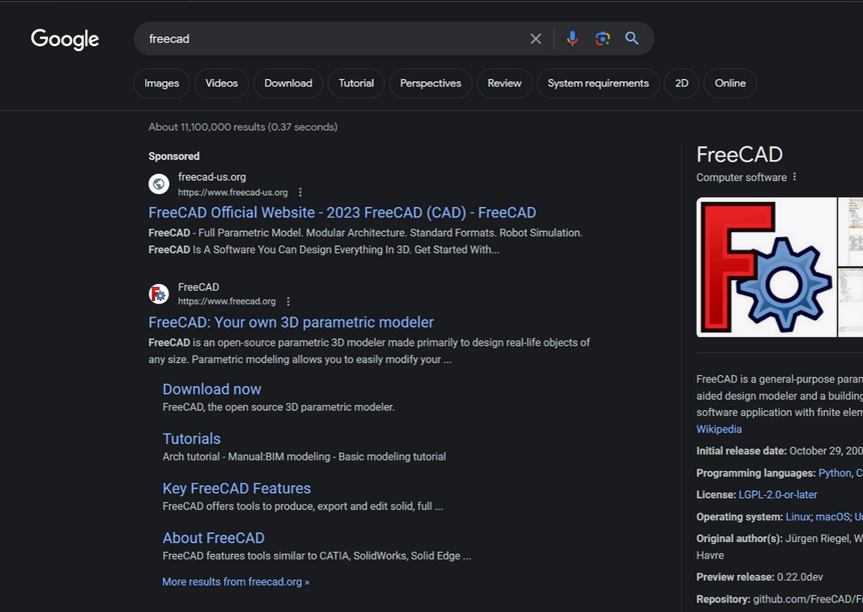Condobloke
Well-Known Member
January 25, 2024
Google continues to struggle with cybercriminals running malicious ads on its search platform to trick people into downloading booby-trapped copies of popular free software applications. The malicious ads, which appear above organic search results and often precede links to legitimate sources of the same software, can make searching for software on Google a dicey affair.
Google says keeping users safe is a top priority, and that the company has a team of thousands working around the clock to create and enforce their abuse policies. And by most accounts, the threat from bad ads leading to backdoored software has subsided significantly compared to a year ago.
But cybercrooks are constantly figuring out ingenious ways to fly beneath Google’s anti-abuse radar, and new examples of bad ads leading to malware are still too common.
For example, a Google search earlier this week for the free graphic design program FreeCAD produced the following result, which shows that a “Sponsored” ad at the top of the search results is advertising the software available from freecad-us[.]org. Although this website claims to be the official FreeCAD website, that honor belongs to the result directly below — the legitimate freecad.org.

How do we know freecad-us[.]org is malicious? A review at DomainTools.com show this domain is the newest (registered Jan. 19, 2024) of more than 200 domains at the Internet address 93.190.143[.]252 that are confusingly similar to popular software titles, including dashlane-project[.]com, filezillasoft[.]com, keepermanager[.]com, and libreofficeproject[.]com.
Some of the domains at this Netherlands host appear to be little more than software review websites that steal content from established information sources in the IT world, including Gartner, PCWorld, Slashdot and TechRadar.
READ MORE
Google continues to struggle with cybercriminals running malicious ads on its search platform to trick people into downloading booby-trapped copies of popular free software applications. The malicious ads, which appear above organic search results and often precede links to legitimate sources of the same software, can make searching for software on Google a dicey affair.
Google says keeping users safe is a top priority, and that the company has a team of thousands working around the clock to create and enforce their abuse policies. And by most accounts, the threat from bad ads leading to backdoored software has subsided significantly compared to a year ago.
But cybercrooks are constantly figuring out ingenious ways to fly beneath Google’s anti-abuse radar, and new examples of bad ads leading to malware are still too common.
For example, a Google search earlier this week for the free graphic design program FreeCAD produced the following result, which shows that a “Sponsored” ad at the top of the search results is advertising the software available from freecad-us[.]org. Although this website claims to be the official FreeCAD website, that honor belongs to the result directly below — the legitimate freecad.org.

How do we know freecad-us[.]org is malicious? A review at DomainTools.com show this domain is the newest (registered Jan. 19, 2024) of more than 200 domains at the Internet address 93.190.143[.]252 that are confusingly similar to popular software titles, including dashlane-project[.]com, filezillasoft[.]com, keepermanager[.]com, and libreofficeproject[.]com.
Some of the domains at this Netherlands host appear to be little more than software review websites that steal content from established information sources in the IT world, including Gartner, PCWorld, Slashdot and TechRadar.
READ MORE


